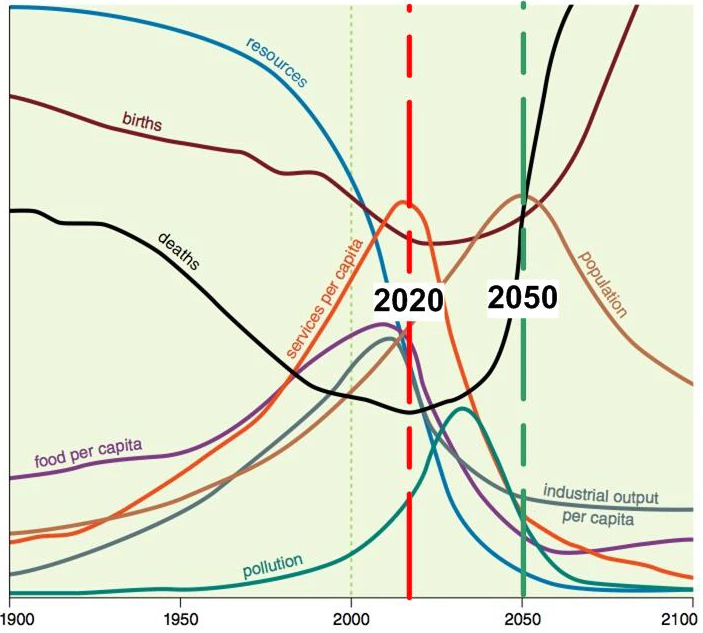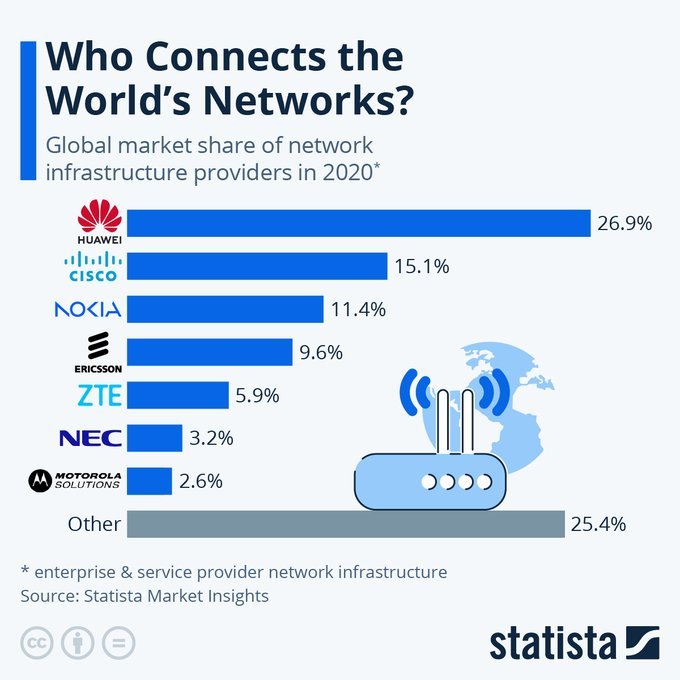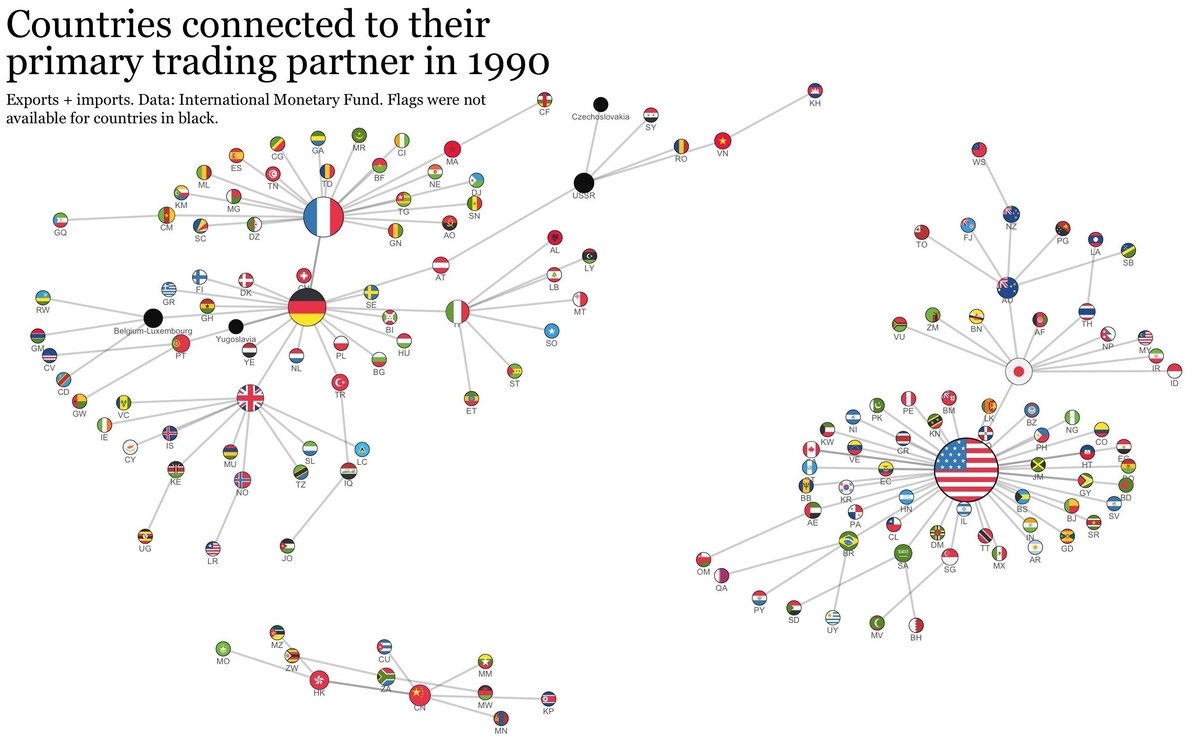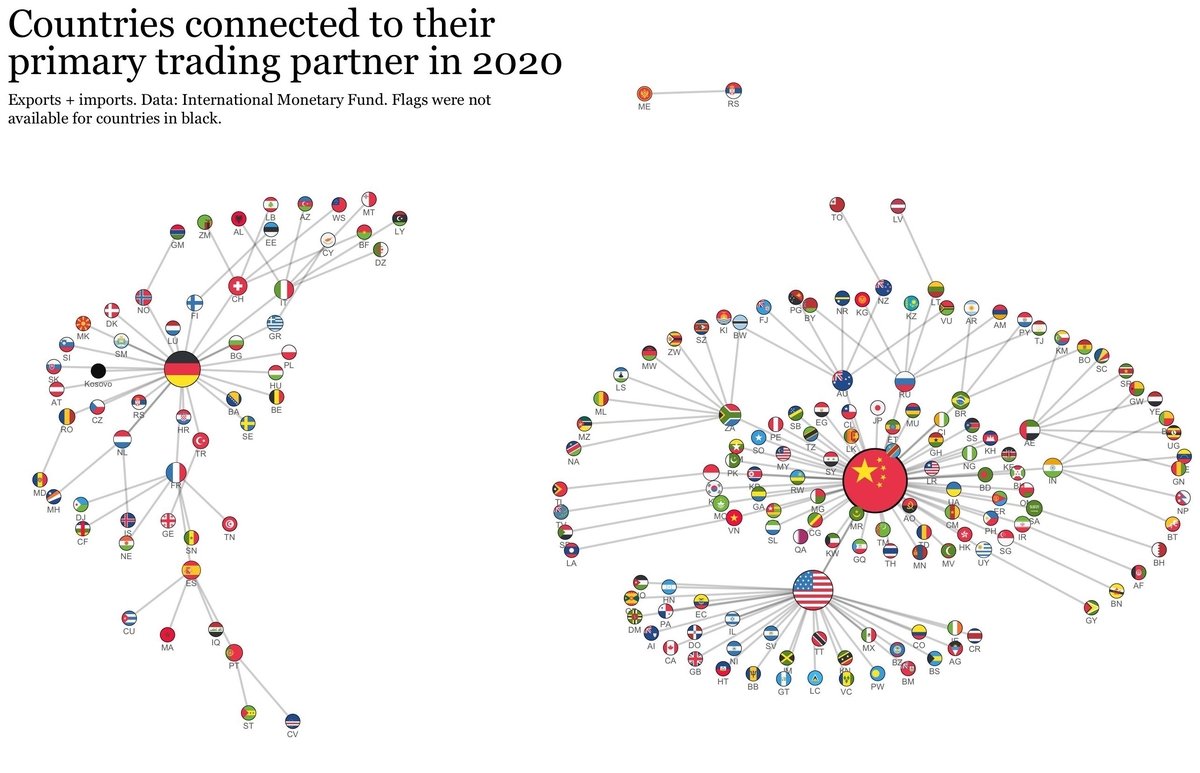The baseline is that China is now the dominant economic power: the greatest great power. This is not evident to everyone yet, it will be soon. They produce more science, are ahead in most technological areas and have the largest industrial base. I’ve written about this plenty, so I’ll leave it at that.
The next baseline is that we have three onrushing issues: climate change, ecological collapse and running out of various resources. The third isn’t obvious to most people yet, but it will be. China has won the lead horse position on a style of life and economy which is genuinely unsustainable, in the sense that continuing to run our economies on planned obsolesence: building lots of stuff to just throw it out in a few years, cannot be sustained because it’s destroying the conditions which allow for human life and a predictable economy.
This doesn’t mean that taking lead horse isn’t useful to China: if they have sense they can use all that industrial capacity and scientific and engineering expertise to speed thru the necessary transition. So far they aren’t, beyond some steps towards the renewable electrical economy, which is necessary but insufficient.
To put it simply, civilization collapse is on the way. Everyone is going to be hit by it, even China and America. I’d expect China to hold on longer than most, unless there’s an early inundation of their croplands in the North, but by 2070 to 80 at the latest, China will be in warlordism again.
However, let’s run thru some shorter term notes about various nations.
Europe is in terminal decline. Maybe a few parts will avoid this, but they are no longer leaders in new science and engineering (China, the US, Japan and South Korea are all ahead of them) and are losing their industrial base because of their high input costs, primarily energy. Making Russia their enemy is costing them their legacy heavy industry, since American energy costs much more than Russian.
Of the major European countries, the UK is in fastest decline, since they sold all their industry long ago and decided to try and live off finance but the entire subcontinent is moving back to its usual place in Eureasian affairs: a backwater.
India isn’t going to make it. Sorry, too many internal problems, too little time. To much corruption and the authoritarianism is clumsy and stupid (there is smart authoritarianism, India is not practicing it) and climate change is going to hit India fairly hard and early. But overall, the signs of takeoff aren’t there, and there isn’t enough time. India will be broken up by 2050 to 2060 and 2035 to 40 is entirely possible: when they have real crop failure, they will have famines which kill hundreds of millions and cause vast violence and displacements. And they are going to have vast crop failure.
(This is a reader supported Blog. Your subscriptions and donations make it possible for me to continue writing, and this is my annual fundraiser, which will determine how much I write next year. Please subscribe or donate if you can.)
South Korea and Japan are the American allies which actually matter. Everyone else is meaningless. These two countries still have industrial bases and fast scientific and engineering advancement. In per capita terms South Korea is first in the world, Japan is second. For now they’re fairly firmly on the US side, but if China is smart and willing to cut them a good deal and they’re smart, they make their peace with the other side. The sooner they do this, the better deal they’ll get.
Russia was done a vast favor by western sanctions, which have forced its oligarchs to actually spend money at home and which has allowed Putin to create new oligarchs based on seized western assets. No more wasting money on British football teams. The Russians are working hard on civilian aviation, they’ve vastly increased their military industrial output and in general sanctions have forced them into industrial policy. Their risk is being swamped by China, and they will have to be smart and cut deals where China lets them keep and extend certain industries.
Saudi Arabia and the oilarchies are screwed. They’ll have their little days in the sun, but they have no real industry or research and aren’t going to be able to ramp up enough. As the age of oil ends, and it is, they will fall into well-earned obscurity and meaninglessness. The only one which stands a chance is Iran, since sanctions forced it to create its own industries. As with Russia and pretty much everyone else, they’ll have to cut a deal with China to keep and extend that industry, but as early allies, that’s easily doable if neither they nor the Chinese get too stupid.
The Developing Nations have a window in which to cut good deals with China. I wrote an entire article on how to cut good deals with China, so I’ll leave it at that. If they don’t, well, the new order will still be more friendly than the late neoliberal order, but most such nations are not in a position to handle climate change and ecological collapse well. It’s going to be ugly. That said, for a few, there will be an opportunity to come out the other side comparatively much better off.
Overall we are moving into a period like that from 1914 to 45 or any other major power reset: the old power is falling, the new power has risen. America was actually ahead of Britain by 1890, and it took quite a while for the British to fall, but this isn’t an exact analogy, because in this case the old and new powers are in conflict and there is an onrushing global near-apocalypse.
There’s only so much time left before everything starts falling apart in ways which can’t be ignored. Smart nations and smart people will use that time to prepare.




